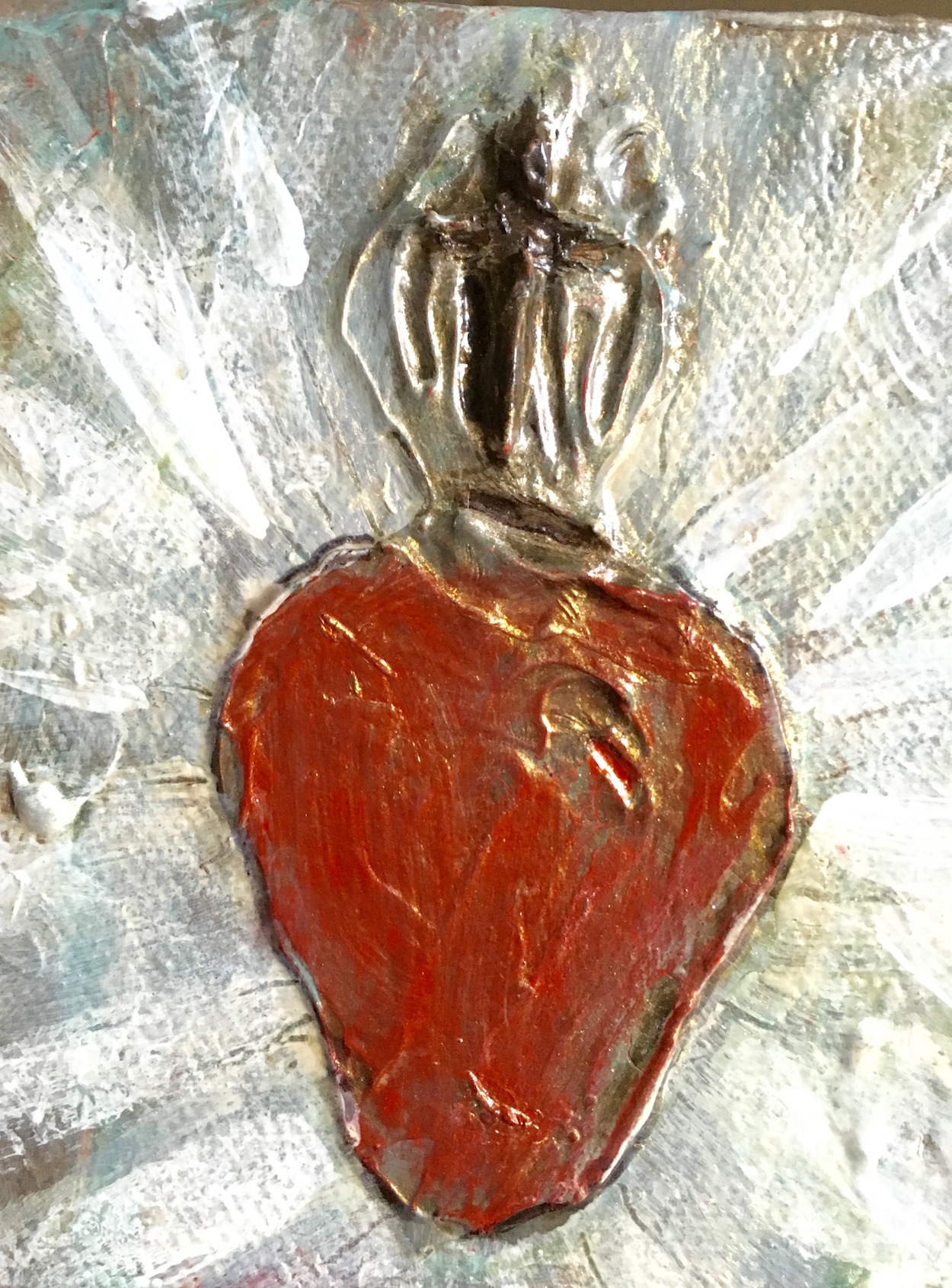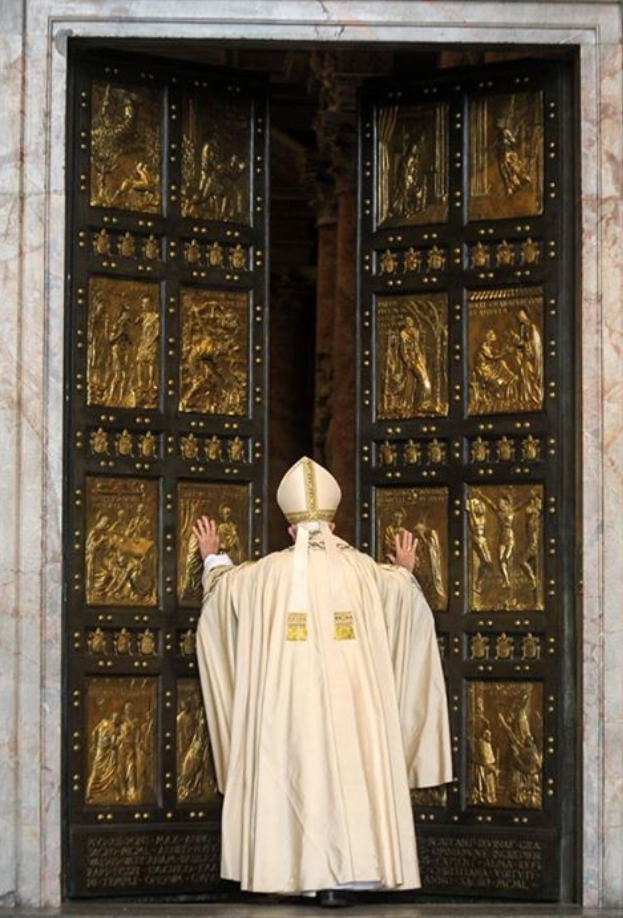
To repeat continually “for his mercy endures forever,” as the psalm does, seems to break through the dimensions of space and time, inserting everything into the eternal mystery of love. It is as if to say that not only in history, but for all eternity man will always be under the merciful gaze of the Father. Pope Francis, Misericordiae Vultus, para. 7
“Let us remember that we are in the holy presence of God.” That reminder begins every class and every assembly at St. Paul’s School, the Catholic high school that my 16-year-old son, Benjamin, attends.
We are in the holy presence of God. Do we believe it? Do we live as though it’s true?
As the world seemingly spins out of control, we can wonder: Where is God in all of this? Caught in the vortex of the world’s chaos, we can feel our center slipping. How do we find rest?
To begin with, we must be intentional about how we spend our time, living with a lively awareness of whether what we do with our time facilitates internal peace or chaos in our lives. We can develop chaos-free habits of living, the most important of which is spending time with God daily in prayer (which, ironically, is the thing we often avoid most). Indeed, “wasting” precious time with God in prayer is the most vital thing we can “do” on any given day, even if it’s just for a few minutes. Jesus spent lavish time in prayer regularly—he “often withdrew to lonely places and prayed” (Luke 5:16). If the God-man needed to pray, how much more do we pitiful sinners need to?
Prayer awakens us to the presence of God, who is always with us. Prayer calls us to center ourselves on God, who as St. Augustine said, “is closer to us that we are to ourselves.” Prayer intentionally pushes back the unholy pandemonium in our lives by reordering our hearts and minds to God. Because the chaos in our lives is often a reflection of the chaos in our hearts and heads. In fact, when our insides become a place of mayhem, our outsides generally follow suit.
It seems that the more chaotic we feel inside, the more we experience ourselves as being “scattered.” Jesus said: “Whoever does not gather with me scatters” (Luke 11:23). It is interesting to note that the New Testament term for the dark power, ho diabolos, from which we derive the word “devil,” literally means “the scatterer.”* The “scatterer” specializes in chaos, disorder, division and disintegration—in keeping us dispersed in umpteen ways until we are beside ourselves.
The good news is that God’s promise is to gather us in from “every place where we (are) scattered” (Ezekiel 34:12). He continually invites us to intimacy with Him, to peace, order and integrity. He invites us to slow down, settle down and look up, praying with the psalmist: "I set the Lord ever before me; with him at my right hand I shall not be disturbed. Therefore my heart is glad and my soul rejoices, my body, too, abides in confidence." Psalm 15:8-9
A powerful remedy for chaos is to gather with God, and in so doing, allow him to gather us back from all of the places to which we have been scattered. As problems press in from every side, let us remember Christ’s words to anxious Martha that sitting at his feet is the one thing necessary (Luke 10:42)—one concrete act that can lead to peace, both in ourselves and in the world around us.
"The Lord is near. Be anxious for nothing, but in everything, by prayer and petition, with thanksgiving make your requests known to God. Then the peace of God that surpasses all understanding will guard your hearts and your minds in Christ Jesus." Philippians 4:5-7
*Thanks to Bishop Robert Barron for this insight.
This article was originally published on Aleteia.




